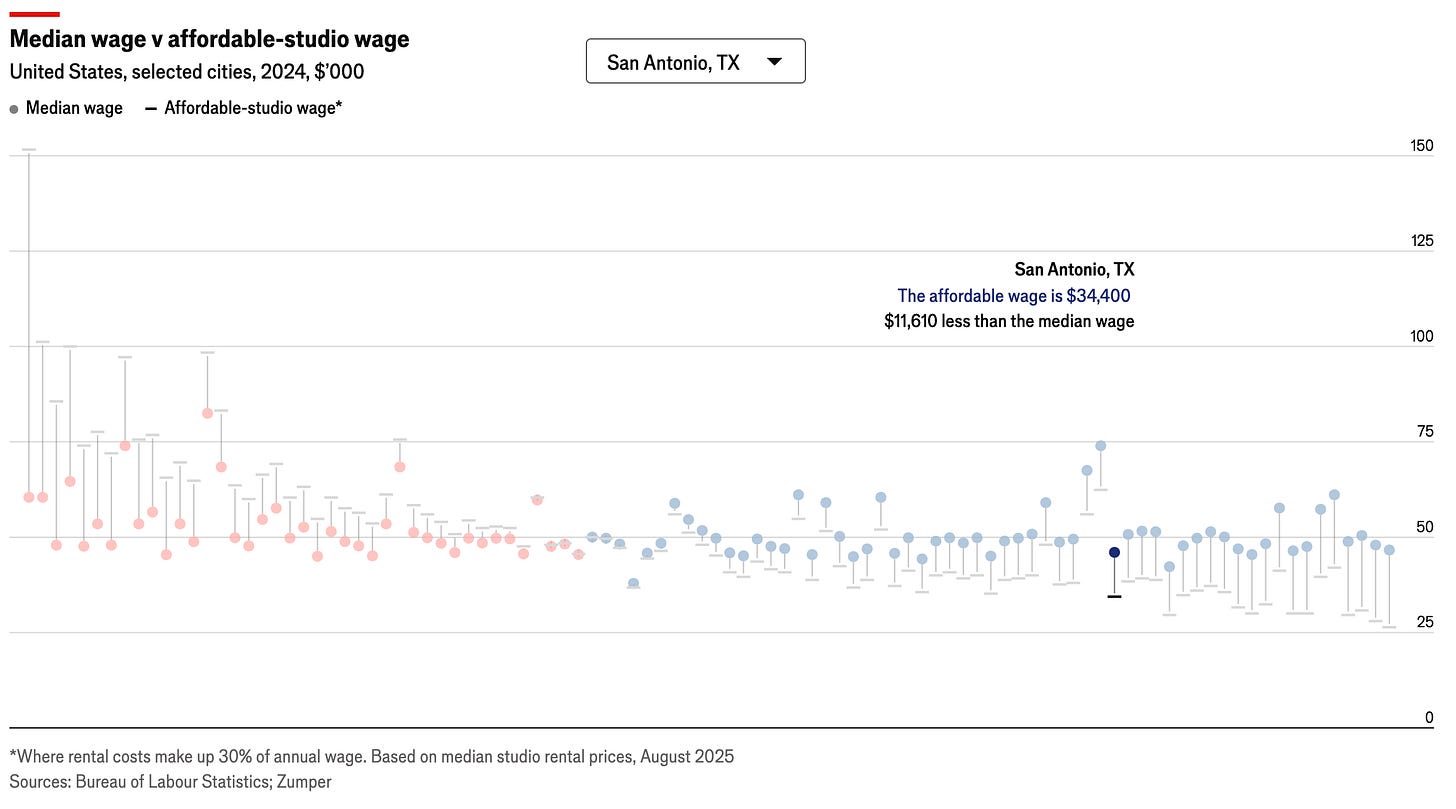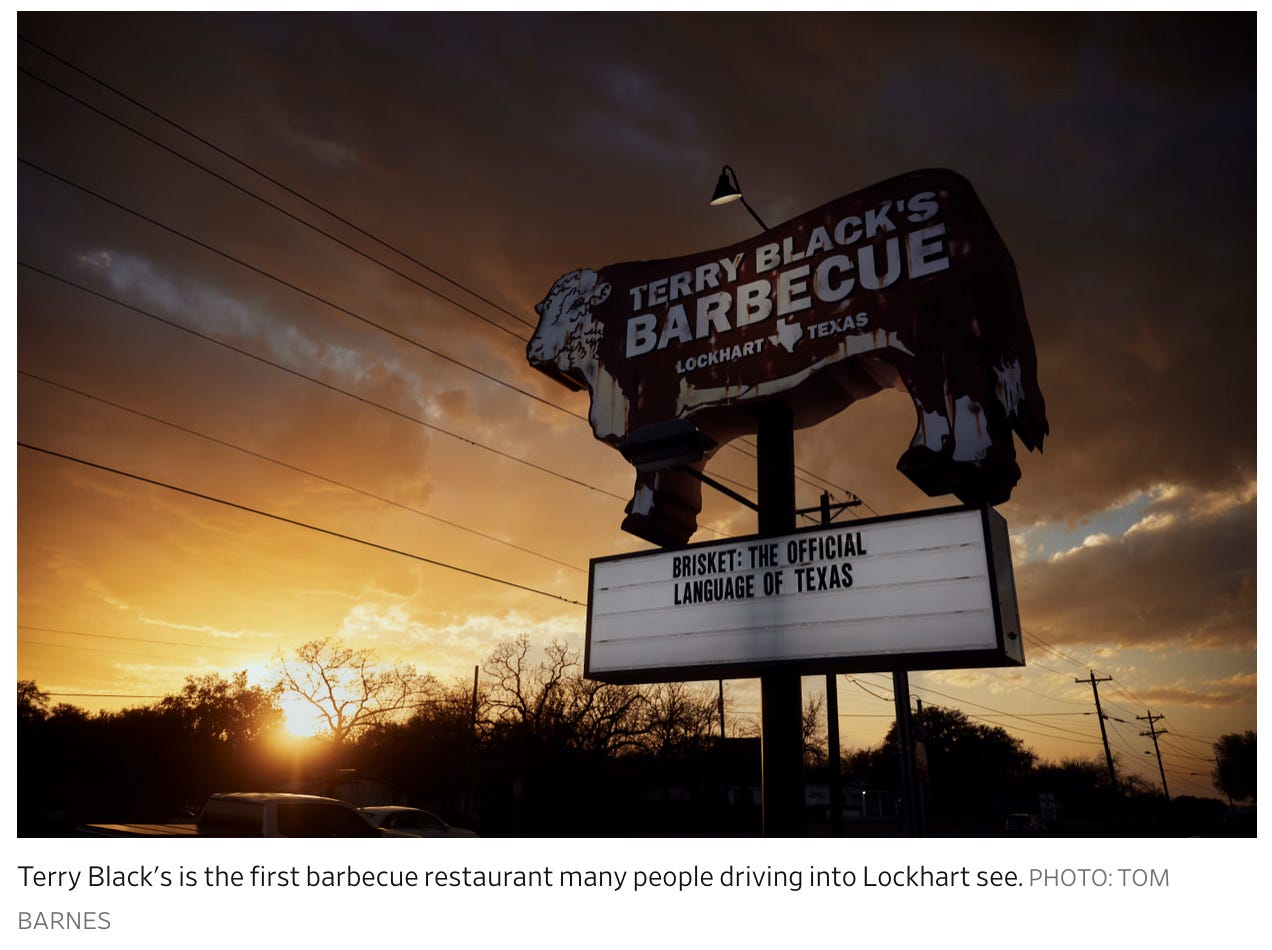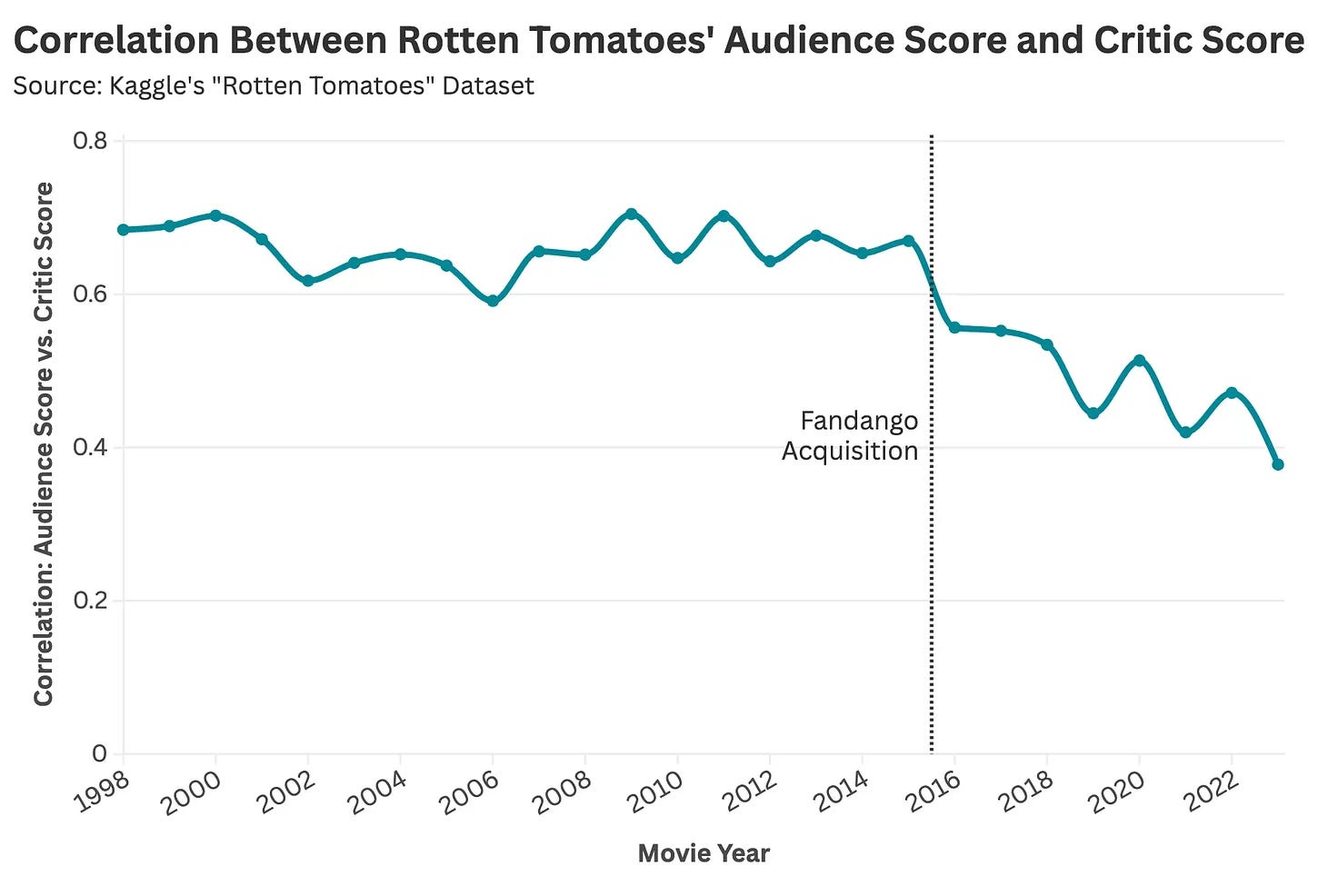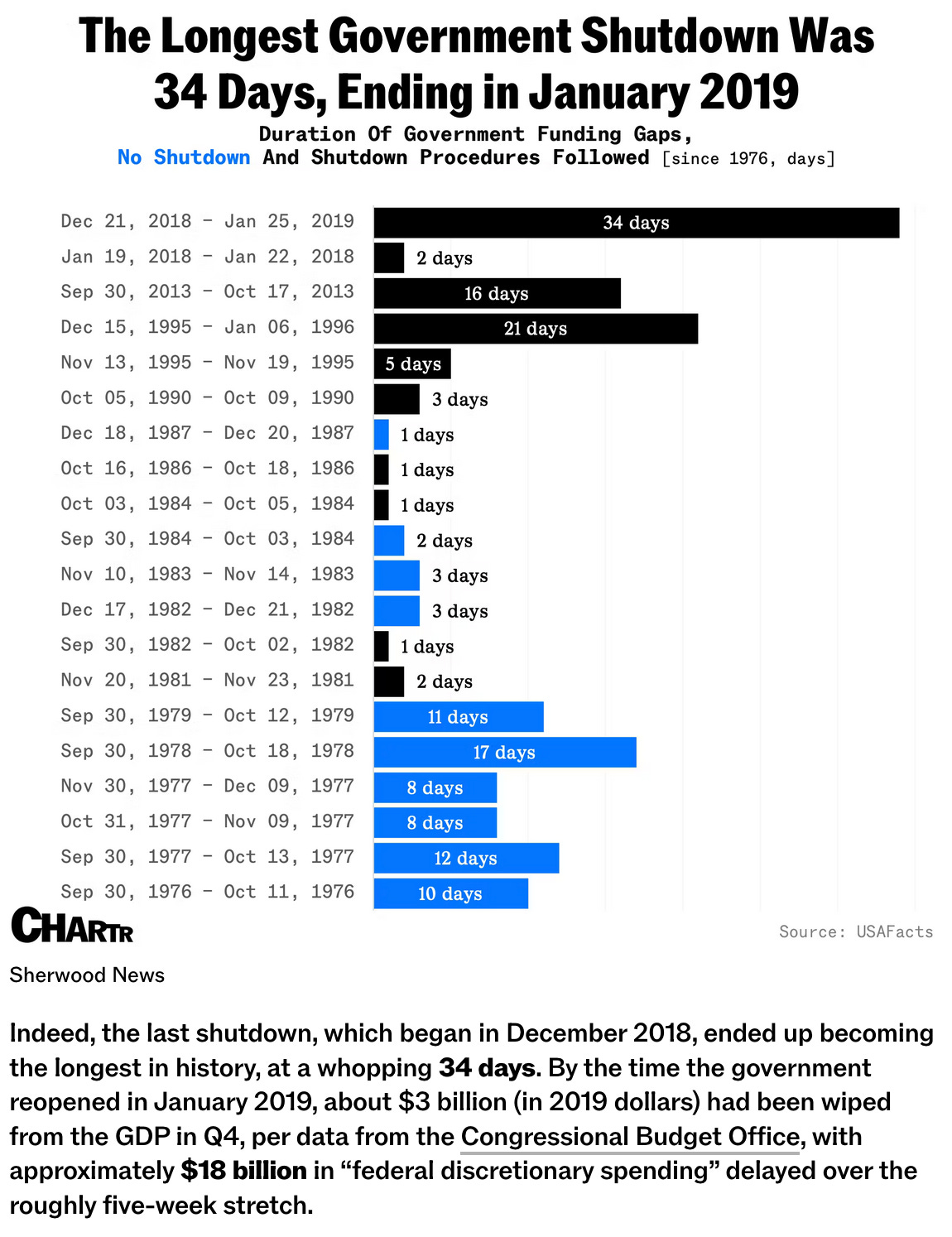9 Things from the week | 4 Oct 25
News from the past week, and a few other things.
1. White House Asks Colleges to Sign Sweeping Agreement to Get Funding Advantage (WSJ)
The Trump administration has proposed a new “Compact for Academic Excellence in Higher Education,” a 10-point agreement that universities can sign in exchange for preferential access to federal grants and other benefits. The compact outlines wide-ranging requirements, including bans on using race or sex in admissions and hiring, five-year tuition freezes, caps on international undergraduate enrollment at 15%, mandatory standardized testing, and efforts to curb grade inflation. It also pushes schools to promote free expression by creating a “vibrant marketplace of ideas” and eliminating departments seen as hostile to conservative viewpoints.
The plan—initially sent to nine universities including Brown, Vanderbilt, MIT, and UT Austin—would give priority funding and White House access to signatories. Critics, such as Ted Mitchell of the American Council on Education, argue the compact threatens academic freedom and free speech by letting the federal government police campus culture. The proposal follows ongoing clashes between the Trump administration and universities over diversity, antisemitism, and rising tuition costs, with signatories required to publicly audit compliance or risk losing federal and private funds.
See compact here:
2. Where can Americans afford to live solo in 2025? (Economist)
The “Carrie Bradshaw index” ranks 100 U.S. cities by how affordable it is to live alone, using the rule that rent shouldn’t exceed 30% of income. Studio rents range widely, from nearly $3,800 a month in New York (requiring $151,600 in income) to under $1,000 in Las Vegas (about $40,000). This year, 41 cities are unaffordable for the average worker, up from 38 last year.
Affordability has worsened in Texas, where Houston, Dallas, and Austin all slipped below the threshold as rents rose faster than wages. Memphis saw the sharpest drop, with studio rents jumping from $745 to nearly $1,200 in just a year.
On the other hand, cities like Tallahassee, Phoenix, Aurora, and Knoxville have become more affordable thanks to wage gains and lower rents. Wichita, Kansas remains the most affordable city, with wages well above what’s needed for a solo renter, making it the top pick for budget-conscious independence. San Antonio still remains one of the more affordable cities.
Article below is a good read--well-reasoned and balanced.
3. How—and Why—U.S. Capitalism Is Unlike Any Other (WSJ)
American capitalism is an outgrowth of American democracy: a system built for individual opportunity, risk-taking, and “creative destruction.” From Hamilton’s defense of speculation to 19th-century innovations like general incorporation, limited liability, bankruptcy relief, contract sanctity, immigration, and mass public education, U.S. law and culture funneled capital to entrepreneurs and rewarded those willing to bet on the new—producing outsized innovation compared with more state-directed models in Europe or China.
But the same market-centrism breeds volatility, fads, and persistent inequality. Slavery was a stark exception to opportunity; later came robber barons and today’s “inequality 2.0,” with the top 1% claiming a larger income share even as the U.S. remains richer and more dynamic than Europe. The piece warns against drifting toward industrial policy and postwar-style corporatism, noting those eras proved static and uninnovative. American capitalism still fails many at the bottom and needs better public goods, yet its defining strength—broad, fast pathways for new entrants—remains the engine of its exceptional growth.
4. Electronic Arts Goes Private for $55 Billion in Largest LBO Ever (WSJ)
Electronic Arts (EA) will go private in a record $55 billion leveraged buyout led by Saudi Arabia’s Public Investment Fund (PIF), Silver Lake, and Jared Kushner’s Affinity Partners—the largest LBO ever, surpassing TXU’s $32 billion deal in 2007. EA shareholders will receive $210 per share, a 25% premium. PIF, already a 10% stakeholder, will contribute most of the $36 billion equity, while JPMorgan Chase is providing $20 billion in debt financing.
The move deepens Saudi Arabia’s investment in gaming alongside stakes in Nintendo and Scopely. It also marks a turning point for EA, whose sports titles (Madden, FC, The Sims) and upcoming Battlefield release have rebounded after pandemic-era declines. CEO Andrew Wilson, in charge since 2013, will likely remain as EA transitions from a public company into one controlled by global investors betting on gaming’s long-term growth.
5. A Barbecue Dynasty’s Feud Is Rocking a Texas Town (WSJ)
Lockhart, Texas—dubbed the “Barbecue Capital”—is home to a fierce family feud as the Black family, who have sold barbecue since the 1930s, split into rival factions: Black’s Barbecue and Terry Black’s. What began as a succession dispute turned into Terry’s side being ousted, sparking the launch of their own restaurants in Austin, Dallas, and eventually Lockhart.
The rivalry has escalated into lawsuits, billboards, tip-related scandals, and dueling signs declaring authenticity. Both sides trade jabs—Terry Black’s positioning itself as the underdog, while Black’s leans on its legacy and history. Locals and visitors now often choose sides, and even social media has fueled the drama, making the feud as much a part of Lockhart’s lore as the brisket itself.
Though Kent Black of the original restaurant says he hopes for reconciliation, Terry’s side insists the competition will never die. For many barbecue fans, the battle has become a soap opera—an added layer of intrigue to the smoky, savory draw of Lockhart’s famed pits.
6. The Explosive, Addictive World of Mystery Toy Collecting (WSJ)
Blind-box collectibles like Sonny Angels and Labubu dolls have become a global obsession, blending nostalgia, surprise, and social connection. Fans—many young adults facing economic uncertainty—are drawn to the thrill of not knowing which toy they’ll unbox and the joy of chasing rare finds. Companies like Pop Mart, maker of Labubu, have turned this excitement into big business, reporting over $300 million in revenue in the Americas and seeing products sell out within minutes. Collectors spend thousands and even line up overnight for a chance at a “secret” edition toy hidden in one of dozens of boxes.
Beyond the toys themselves, blind boxes have become a form of affordable luxury and community. Fans display their finds as status symbols, trade duplicates at meetups, and share unboxing videos that rack up millions of views. For many, the appeal lies as much in the emotional rush and connection with fellow collectors as in the tiny figurines inside—proof that even small surprises can spark joy in uncertain times.
7. L.A.’s Entertainment Economy Is Looking Like a Disaster Movie (WSJ)
Hollywood’s once-thriving creative middle class is collapsing as film and TV production grinds to a historic low. Since the dual strikes ended in 2023, studios have slashed budgets, streaming growth has stalled, and major productions have shifted overseas. Los Angeles County has lost over 40,000 entertainment jobs in two years, leaving thousands of artists, technicians, and crew members scrambling for work. Many, like animator Brian Mainolfi and Oscar-winning sound mixer Thomas Curley, have gone months or even years without steady income, burning through savings and losing health benefits. The ripple effects stretch far beyond studios—small businesses from prop houses to bakeries are shutting down, and L.A.’s broader economy is faltering with high unemployment and slow growth.
While some producers are pushing for federal tax credits to bring filming back to the U.S., many fear it’s too late. Cheaper production abroad, rising costs at home, and the looming impact of AI threaten to make the downturn permanent. Veterans of the industry are selling homes, changing careers, or leaving Los Angeles altogether, marking what could be the end of Hollywood’s middle-class dream. “We used to say, ‘Survive ‘til 25,’” one worker said, “but now it feels like we might not survive at all.”
Stumbled across the Substack Stat Significant, and quickly liked it. Many great articles/stats on entertainment to get lost in.
8. Is Rotten Tomatoes Still Reliable? A Statistical Analysis (Stat Significant)
Rotten Tomatoes, once a trusted measure of critical consensus, appears to have grown increasingly generous since its 2016 acquisition by Fandango—the movie ticketing company co-owned by major Hollywood studios. Before then, critics’ and audiences’ scores closely tracked each other, but after the merger, critic scores began to rise sharply even as audience sentiment stayed steady. The likely reason lies not in suddenly improved filmmaking but in expanded critic selection: the site added dozens of lesser-known reviewers, many from small blogs or side projects, whose generally positive takes now weigh equally with those from major outlets. Studios and PR firms have learned to exploit this system, courting these smaller critics to secure “fresh” ratings in time for opening weekends, turning Rotten Tomatoes into a quiet but potent marketing tool.
While this inflation of ratings might encourage more people to see movies—and thus help theaters recover in a shaky post-pandemic industry—it risks eroding long-term trust. What began as a straightforward aggregation of genuine critical consensus has shifted toward something that rewards manipulation and mediocrity. The result is an ecosystem where nearly everything is “Certified Fresh,” not because every film deserves it, but because Hollywood has learned how to game the system that was built to hold it accountable.
And, to close us out, item #9, a chart:









